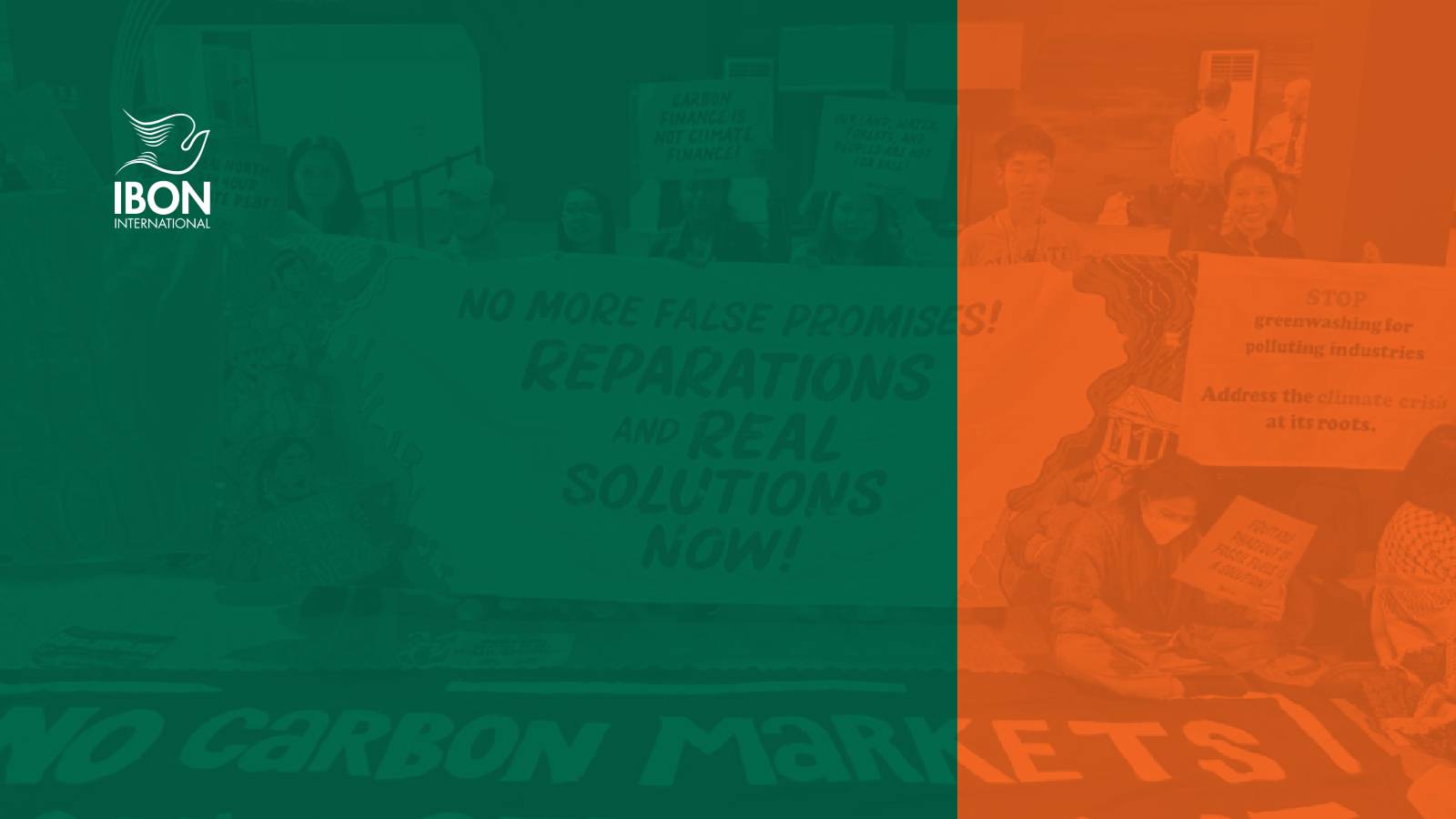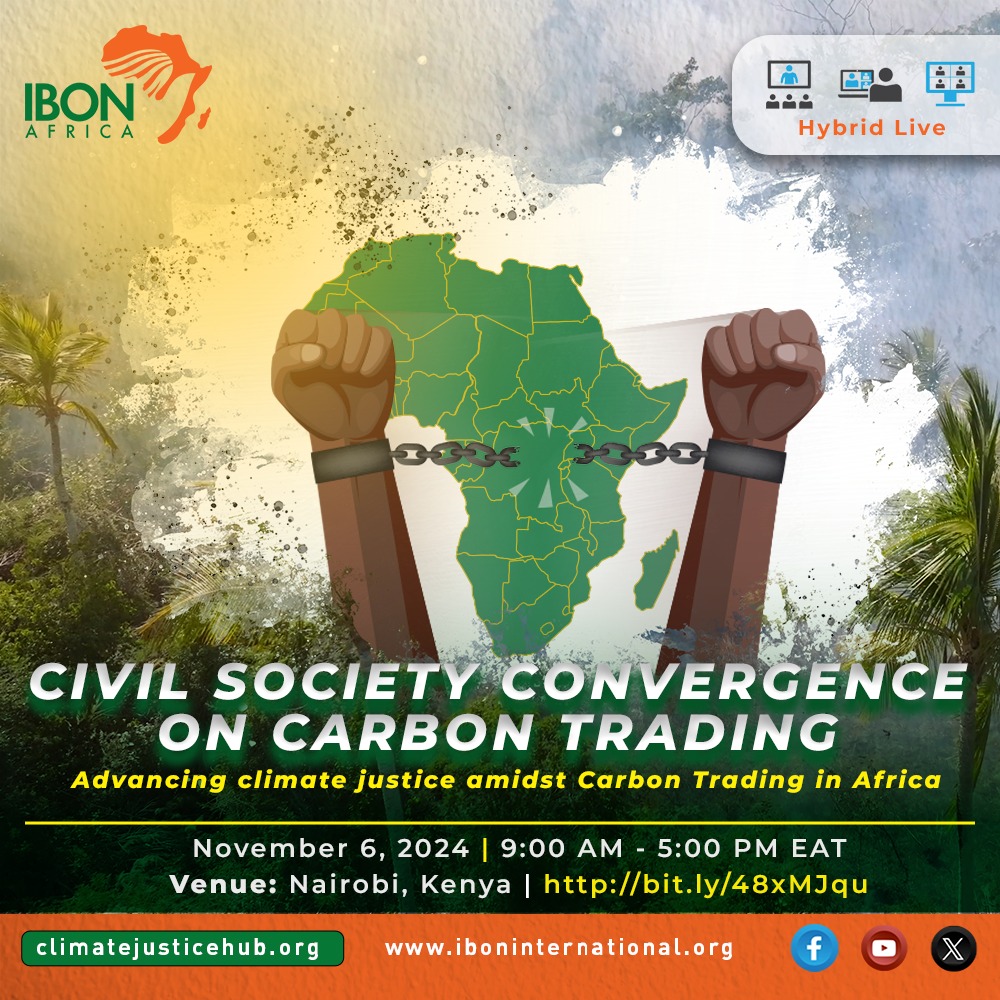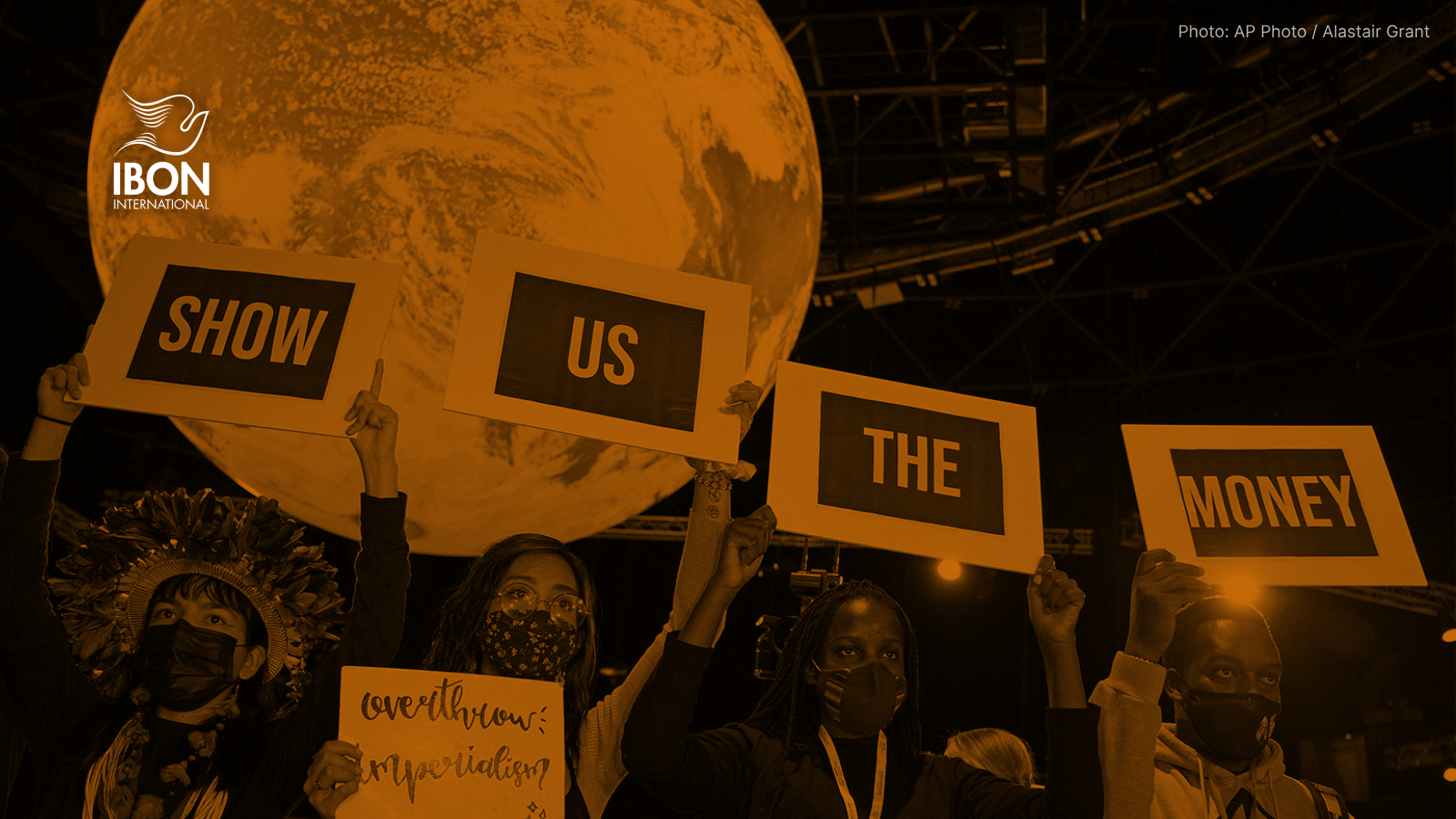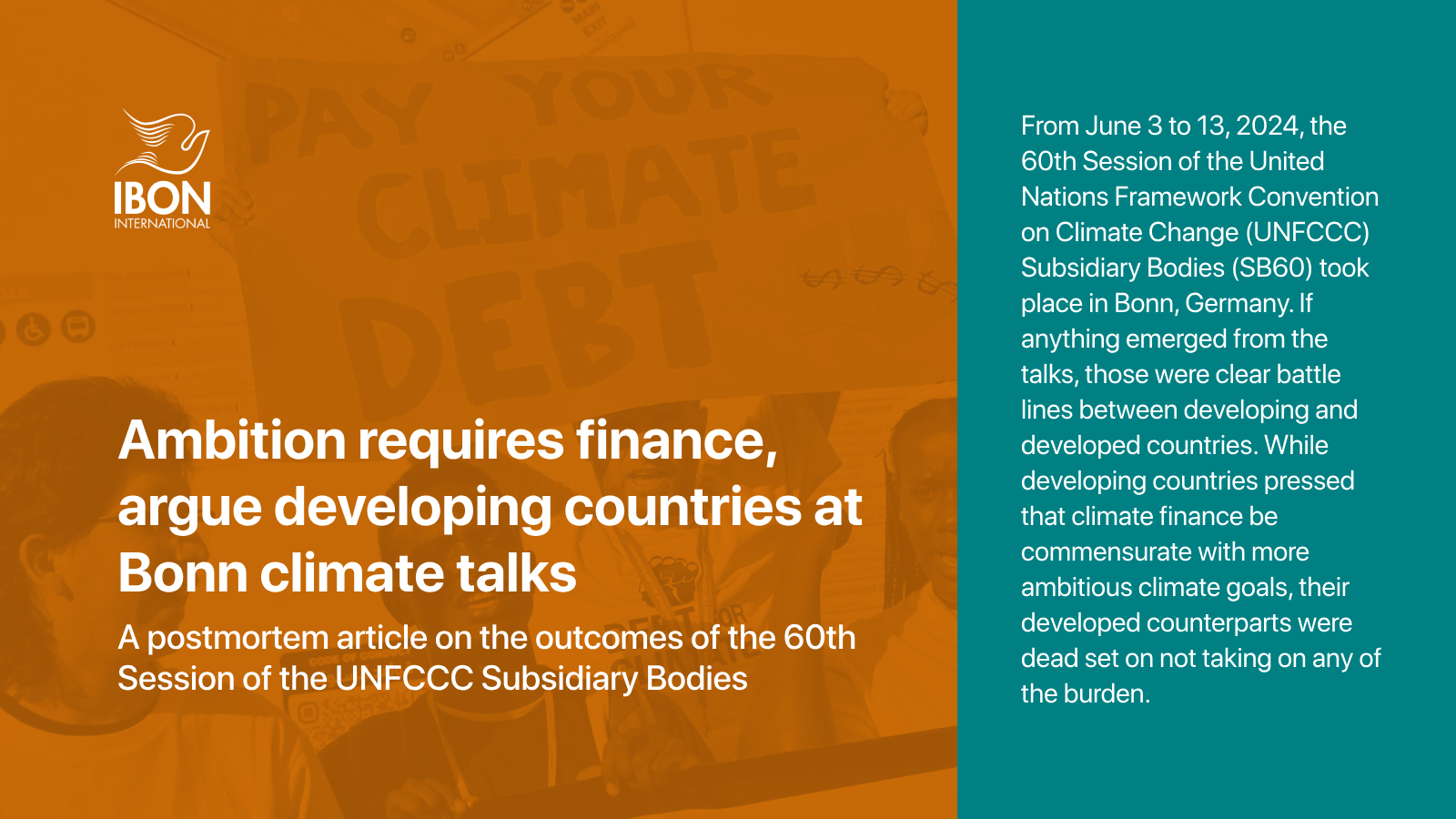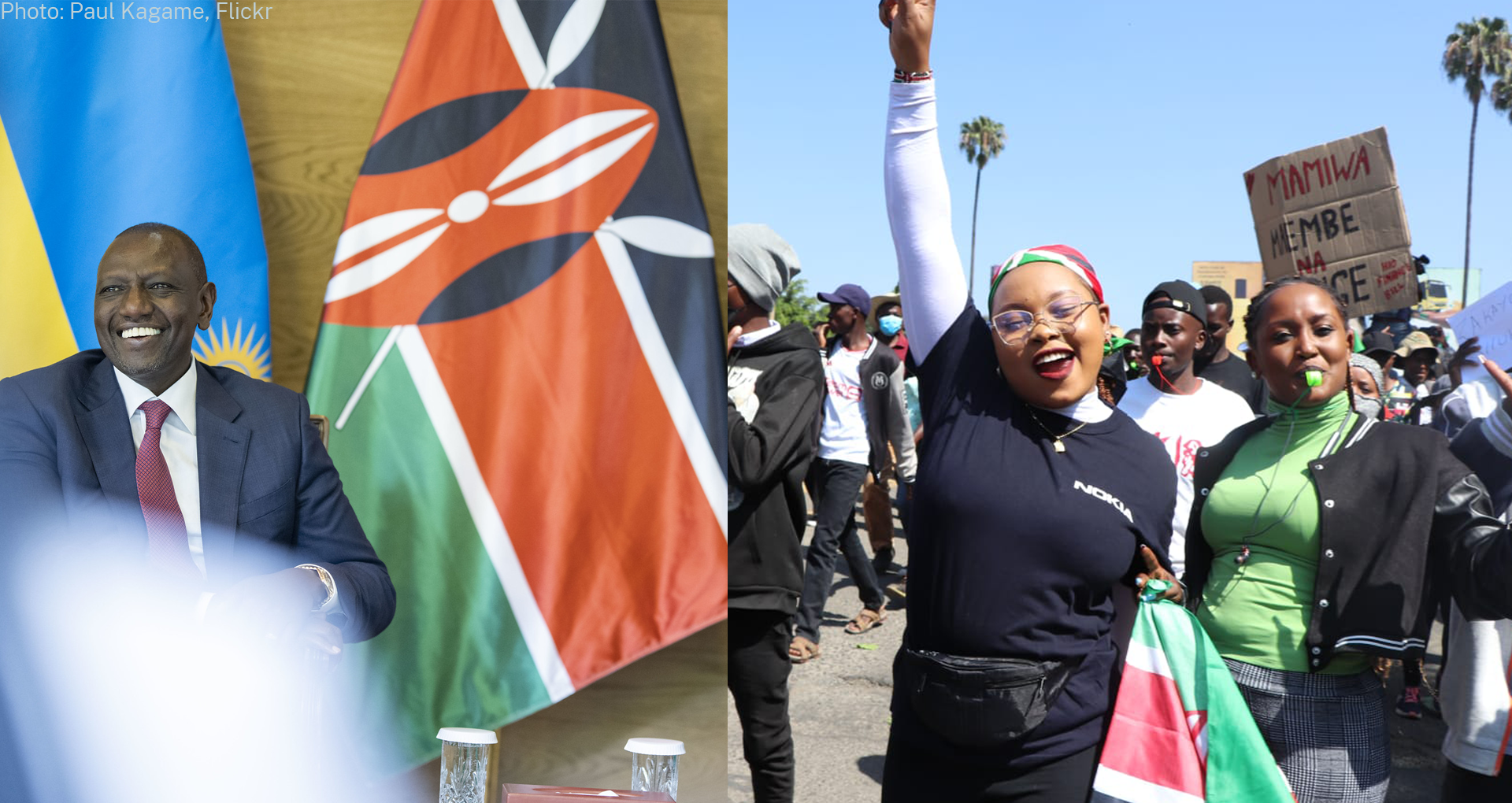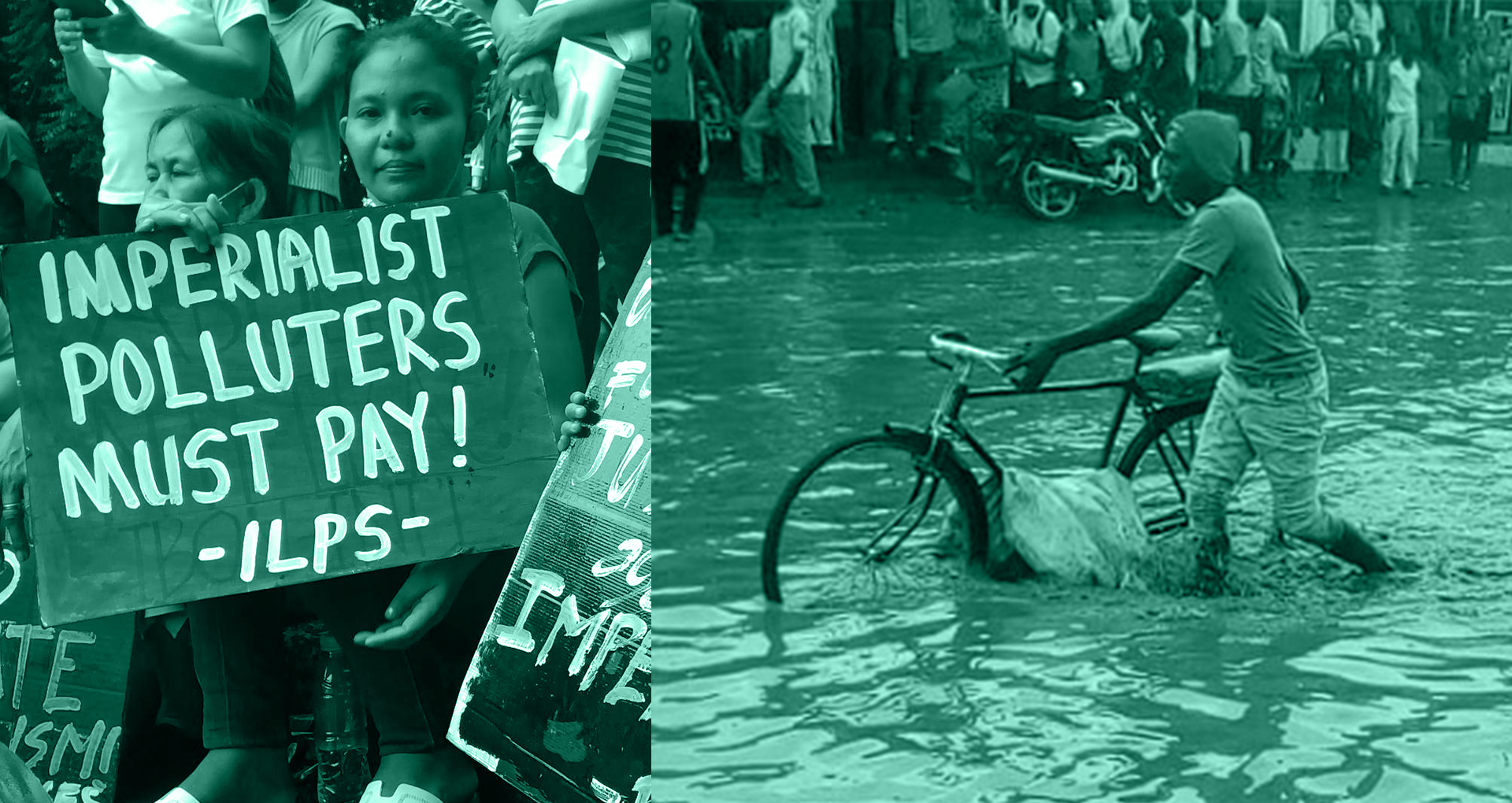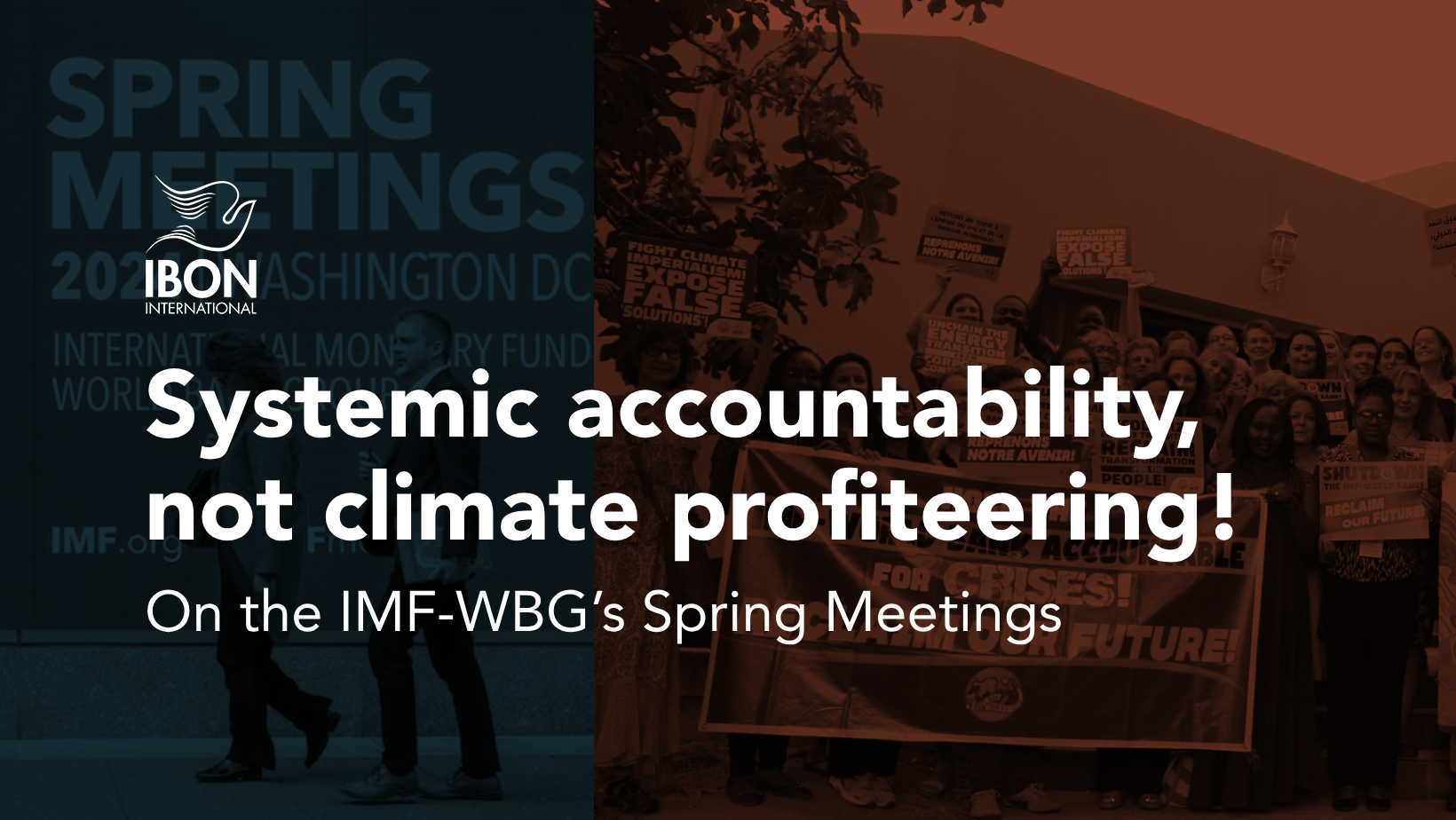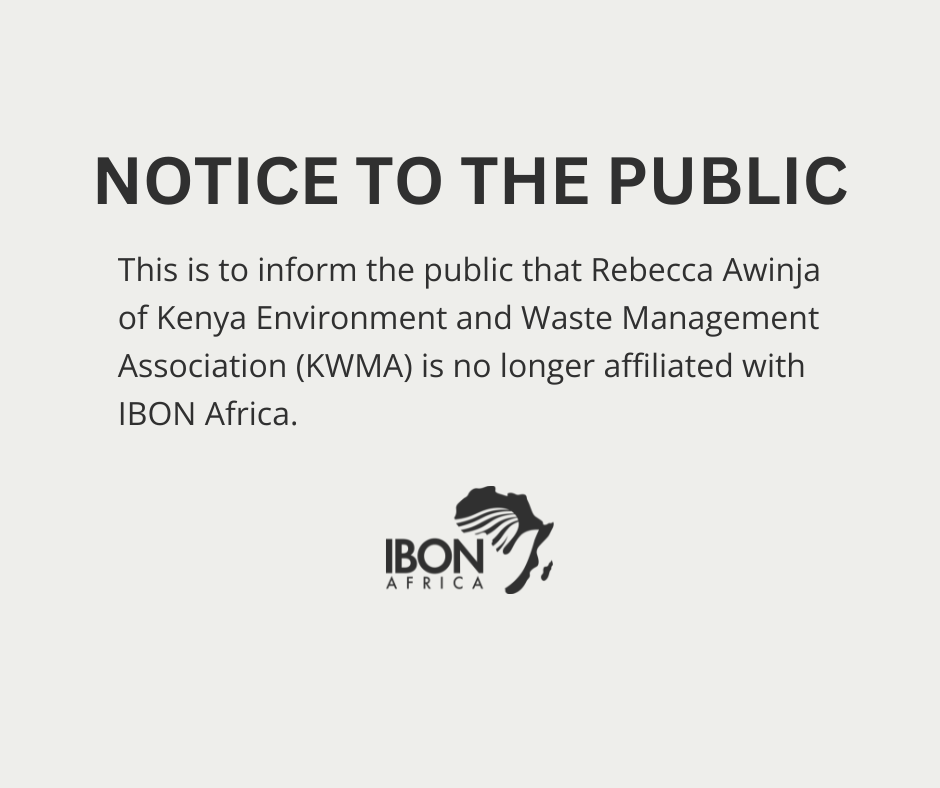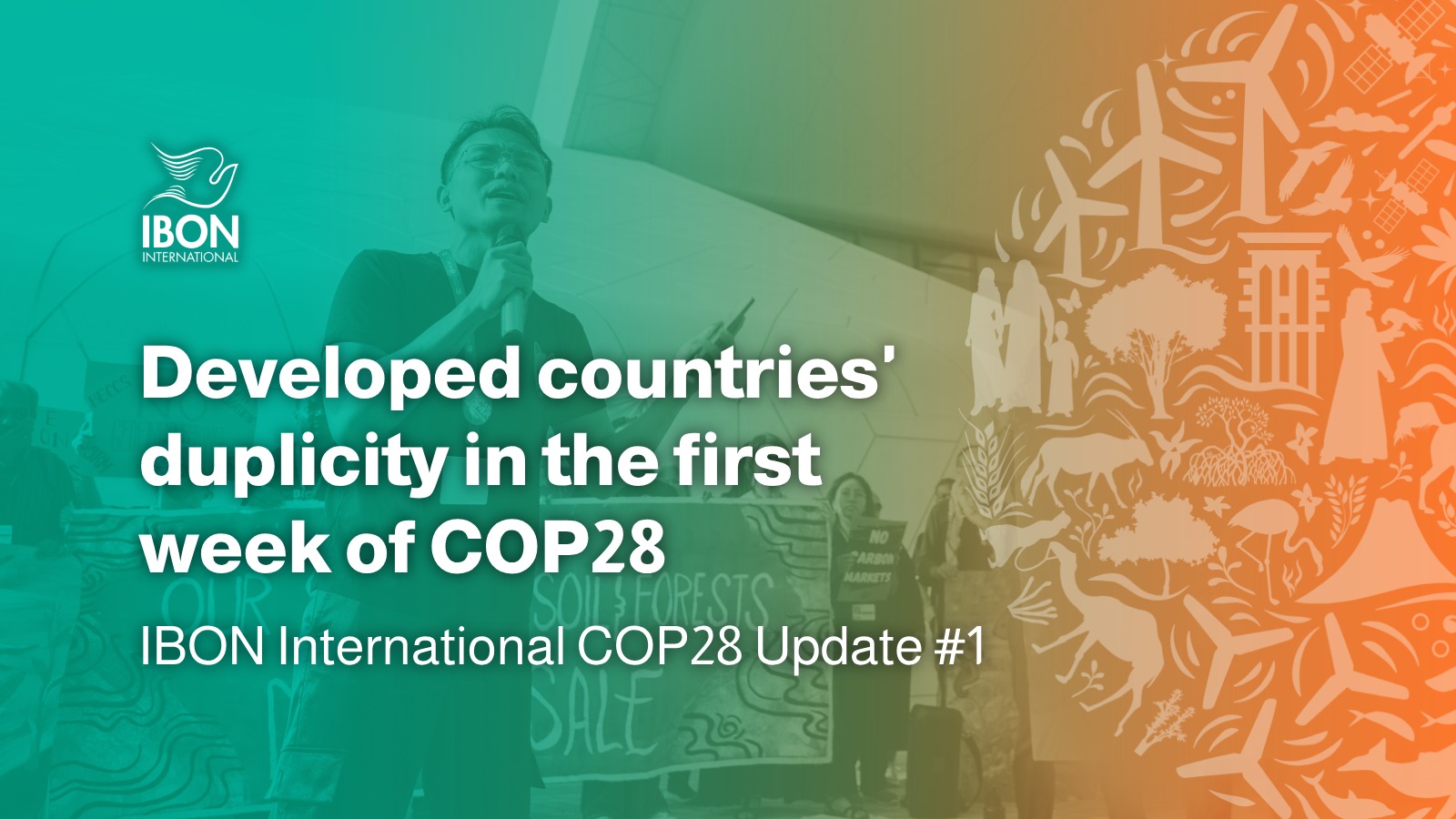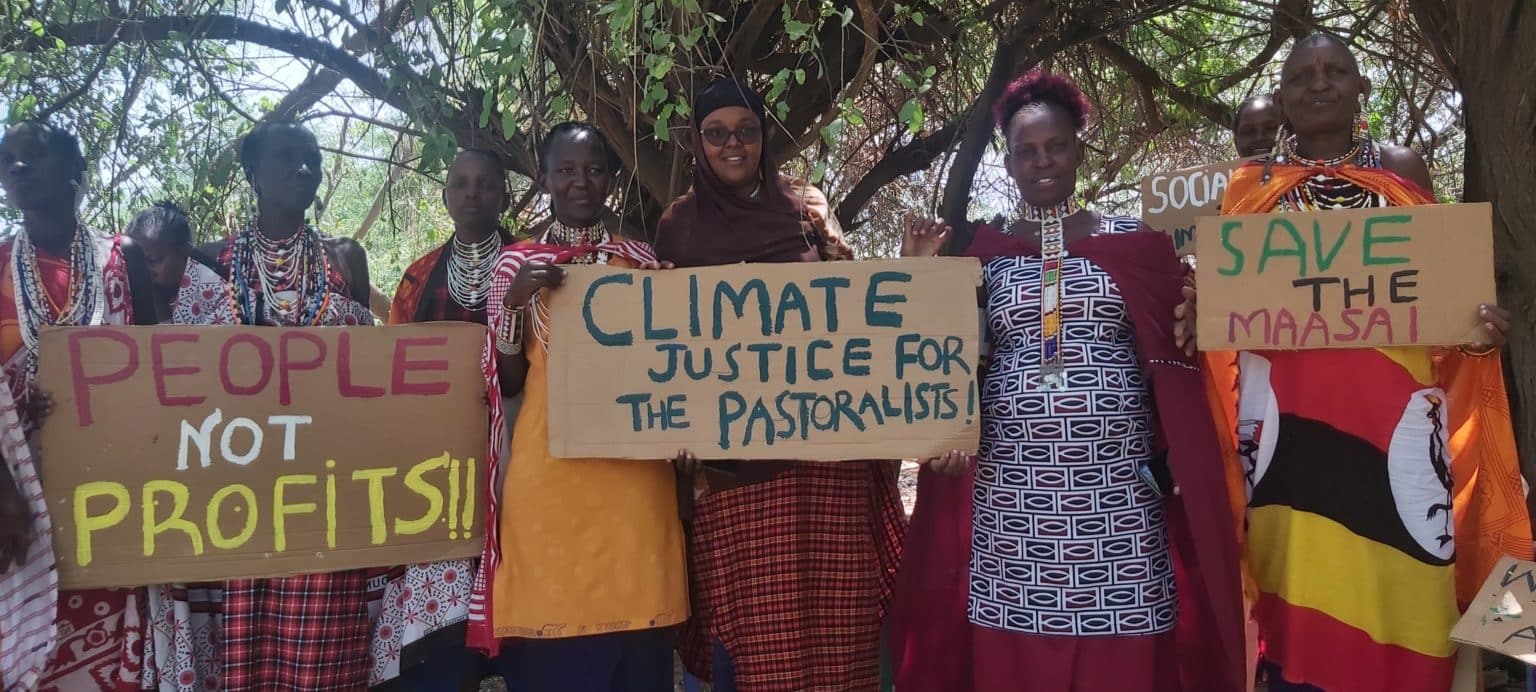Regional dispatch – IBON Africa
The effects of climate change on Africa have been significant, despite the continent contributing only a small percentage of global emissions. According to the United Nations Environment Program (UNEP), Africa is the most vulnerable region to climate change due to its lower adaptive capacity and low levels of technology. This vulnerability is compounded by profit-driven investments in development projects, such as dams and plantations, which have disrupted ecological systems, resulting in land degradation and deforestation and denied vulnerable communities their right to sustainable livelihoods.
The 27th Conference of Parties (COP27) in Egypt was envisioned as a rescue plan for most African nations. Civil society celebrated a breakthrough when governments caved in to demands to establish a Loss and Damage Fund (LDF). The Fund sought to support developing countries, particularly the frontline communities to adapt to climate change impacts. Yet, COP27 failed to make progress on interlinked agenda that would have made a loss and damage fund truly meaningful for frontline peoples and communities.
Despite the urgent need to limit global warming to 1.5°C, COP27 failed to raise the emissions reduction targets of countries. In negotiations, there were a number of attempts from developed countries to remove principles of equity and common but differentiated responsibilities (CBDR) that would require them to cut down on emissions given their centuries of exploitation and pollution. As it stands, Nationally Determined Contributions (NDCs) from developed countries will still lead to an overshoot of the global warming threshold.
The utter lack of ambition has left African nations disappointed, as they continue to endure climate change impacts despite their limited responsibility. With emissions still on the rise, the impacts of climate change will most definitely worsen and put the lives of marginalized communities in Africa at risk of longer periods of droughts and floods.
Apart from these, the big agribusiness model of monocrop agriculture exacerbates unsustainable land and water use. Industrial agriculture and the dependence on agro-chemical inputs are key drivers of climate change, biodiversity loss, and environmental degradation. In line with this, the Egyptian presidency of COP27 and the Food and Agriculture Organization (FAO) jointly launched the Food and Agriculture Sustainable Transformation Initiative (FAST) which aims to transform food systems to align with the goals of the Paris Agreement. While purporting to be a step in the right direction, civil society groups are closely watching this and similar initiatives to prevent governments from bolstering the already extensive corporate control of food systems.
Looking ahead to COP28, it is crucial that parties come to the table with a sense of urgency to address the pressing issues of climate change. Considering the recent report by the International Panel on Climate Change (IPCC), it is imperative that developed countries take ambitious steps to reduce their emissions and support the most vulnerable countries in adapting to the impacts of climate change. COP28 presents an opportunity for countries to ensure that the voices of the most marginalized, especially the African peoples, are heard and prioritized.
Loss and Damage
Africa has been severely impacted by the effects of climate change, causing devastating losses and damages from droughts, sea level rise, and disruption of livelihoods of millions of people, including cattle keepers, farmers, fisherfolks, and wildlife. The most vulnerable to these impacts are marginalized communities, particularly small-holder farmers who rely solely on rain-fed agriculture. As temperatures rise, the productivity of crops such as maize, rice, potatoes, and wheat has significantly declined, and they are becoming more susceptible to pests and diseases due to changing precipitation patterns.
The Horn of Africa has been one of the regions most affected by the consequences of climate change, experiencing the worst and longest period of drought in the last 40 years. Millions of livestock have died, croplands have been destroyed, and millions of people have been forced out of their homes. This has resulted in at least 22 million African people facing food insecurity. The global North has a historical responsibility for the carbon emissions in the atmosphere, primarily through unfair trade practices that have adversely affected Africa’s natural resources through overexploitation. As a result, African climate negotiators and activists are actively seeking compensation from global North nations.
After years of advocacy by civil society organizations, world leaders have agreed to establish a new funding arrangement to respond to loss and damage through the creation of a specific fund. This move should provide the necessary reparations to communities most affected by the intensifying impacts of climate change such as desertification, crop failures, prolonged heat waves, and rising sea levels, among others. In the upcoming Conference of Parties (COP28), scheduled for November 2023, it is hoped that world leaders will take more significant steps to address climate change’s effects on Africa.
Carbon Credits
Carbon credits are a form of permit that grants the right to emit a specific quantity of carbon dioxide or an equivalent amount of greenhouse gases. At COP27, an agreement was reached on the creation of a new carbon credit for governments and corporations in the centralized carbon market. To advance carbon credit production through voluntary carbon market activation plans, Kenya and other African nations expressed their commitment to collaborating with the Africa Carbon Markets Initiative (ACMI), which aims to support carbon credit production growth and create employment opportunities in Africa.
Carbon markets should not be supported as they prioritize profit over protecting the environment, allowing corporations to offset emissions without reducing them. Despite their assumed benefits, market-based solutions such as credits have had negative impacts on the global South, as they increase the risk of corporate encroachment on community land. Northern countries shift their responsibility to Southern nations, leading to an inequitable burden sharing of emission reduction responsibilities.
Despite contributing only 2-3% of carbon dioxide emissions, Africa bears the brunt of having carbon offsets set up to help the global North earn more carbon credits. These offsets trigger the displacement of Indigenous communities from conservancies and forests, resulting in conflicts between governments and communities in Africa, human rights violations, resource loss, and environmental degradation.
During COP27, President William Ruto announced that Kenya is committed to realizing its full potential in carbon markets to support climate action. The President suggested that Kenya could benefit significantly by attracting income and development opportunities for communities. However, civil society organizations are categorical about their opposition to carbon credits and similar market-based solutions that prioritize profits over people and the environment. The climate crisis demands systemic change in reducing emissions, wherein developed countries are held accountable for their historical emissions and take responsibility for reducing their carbon emissions.
Climate Finance
Recent research indicates that the economic costs of climate change in developing countries could reach between USD 290 to 500 billion by 2030. This highlights the urgency for developed countries to provide financial support to the most vulnerable countries. Despite this, during COP27, developed countries attempted to dilute climate targets and continued to renege on financial commitments.
A key focus at COP27 was the New Collective Quantified Goal, which aimed to mobilize funds for climate finance. However, discussions on this topic were challenging, with developed nations hesitant to commit to higher pledges. They instead argued for a broader contributor base, which would include high-income countries and the private sector, to participate in mobilizing climate finance.
To enhance the resilience of developing countries to the impacts of climate change, adaptation efforts are crucial. This requires significant funding for building flood defenses, preserving wetlands, restoring mangrove swamps, and regrowing forests. Unfortunately, discussions on the Global Goal on Adaptation (GGA) during COP27 failed to meet expectations to double adaptation funds, leaving developing countries without adequate resources to protect themselves from climate change impacts.
Civil society organizations are calling for effective climate finance, including the fulfillment of developed countries’ obligations to mobilize funds for developing countries, to be addressed at COP28. They further emphasize the need for climate finance to be tailored to meet the unique needs of developing countries and frontline communities.
Recommendations for COP28
COP28 is an opportune time to build momentum and meaningful dialogue on the devastating impacts of climate change on the African continent. Drawing from both the successes and shortcomings of COP27, IBON Africa asserts that a people-driven COP28 must:
- Ensure meaningful participation and input of those most negatively affected by climate change. It is essential to involve communities and their perspectives to ensure that interventions are effective and sustainable;
- Compel developed nations to take responsibility for their past actions and provide the necessary climate finance and loss and damage funds as restitution for the resource extraction, environmental damage and pollution;
- Urge governments to prioritize the protection and conservation of natural resources as a major contribution to climate change mitigation. This requires redirecting resources and strengthening commitment towards sustainable development; and
- Require developed countries to deeply reduce their carbon emissions instead of relying on carbon offsets that often displace Indigenous communities and present a false solution to the climate crisis.
It is crucial to halt harmful development projects that deny communities access to natural resources. Before pursuing any development project, it is essential to seek approval from peasant and Indigenous communities who are most exposed to the impacts of such projects.
Communities must be empowered to implement their own community-based forest management to regain their rights to land and access to forest resources. This form of governance gives community members the power to manage forest areas without external interference from profit-driven entities.
Conserving Indigenous knowledge and traditional practices is a viable form of climate action. Indigenous knowledge and traditional practices can be scaled up and serve as effective adaptation and mitigation measures, depending on the country’s context. It is crucial to recognize and preserve these practices as a critical part of climate change response strategies. #

